-
Weed Killers: the ugly truth about these wildlife killing sprays
 Lee Burkhill: Award Winning Designer & BBC 1's Garden Rescue Presenters Official Blog
Lee Burkhill: Award Winning Designer & BBC 1's Garden Rescue Presenters Official Blog

It's easy to reach for weed killer sprays to help battle unwanted plants in your garden. After all, many of us are time-poor gardeners, and what's the harm in a little chemical help when trying to keep our green spaces gorgeous and weed-free? You may think that they are pretty much harmless. After all, why would garden centres and shops sell them so readily each year? What would you say if I told you that weed killers are probably the most dangerous part of gardening?
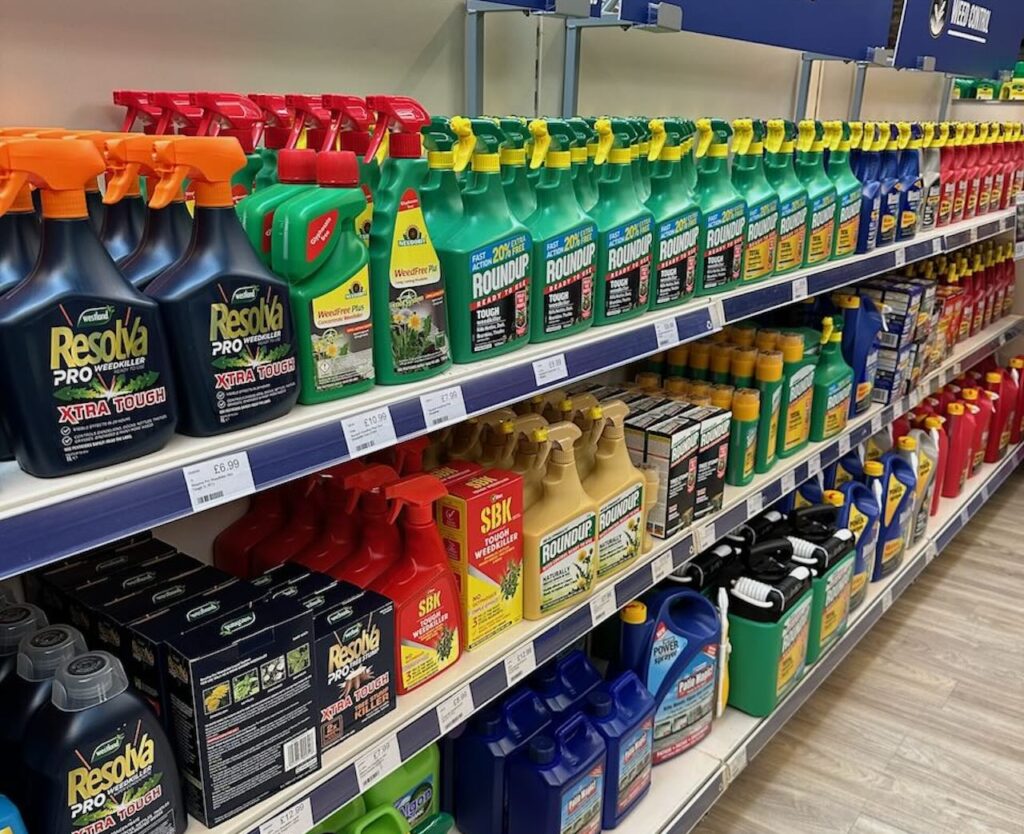
Weed killers, also known as herbicides, are widely used by gardeners to control unwanted plants. Still, there is a dark side to them when misused, which risks not only damaging your other plants but also harming wildlife and, in some cases, yourself.
This article explores these dangers in detail, backed by scientific studies and expert opinions on why you should opt for other ways to weed your garden (like organic methods here) rather than weed-killer sprays.
Most herbicides or weed killers are applied in liquid form with their spray bottles or drenches. This is because some herbicides enter the plant through the leaves, not just roots. These are called systemic weed killers. The weed killer, such as Glyphosate, is sprayed on. It enters the plant through the leaf stomata and then works to prevent the weed or any other plant from respiring, taking on water and nutrients. Starving the plant, so it dies.
Other application methods involve the soil or contact only; we cover these further in this article. All weed killers prevent plants from growing by disrupting their water, air, and food regulation or causing unusually fast growth that exhausts the plant.
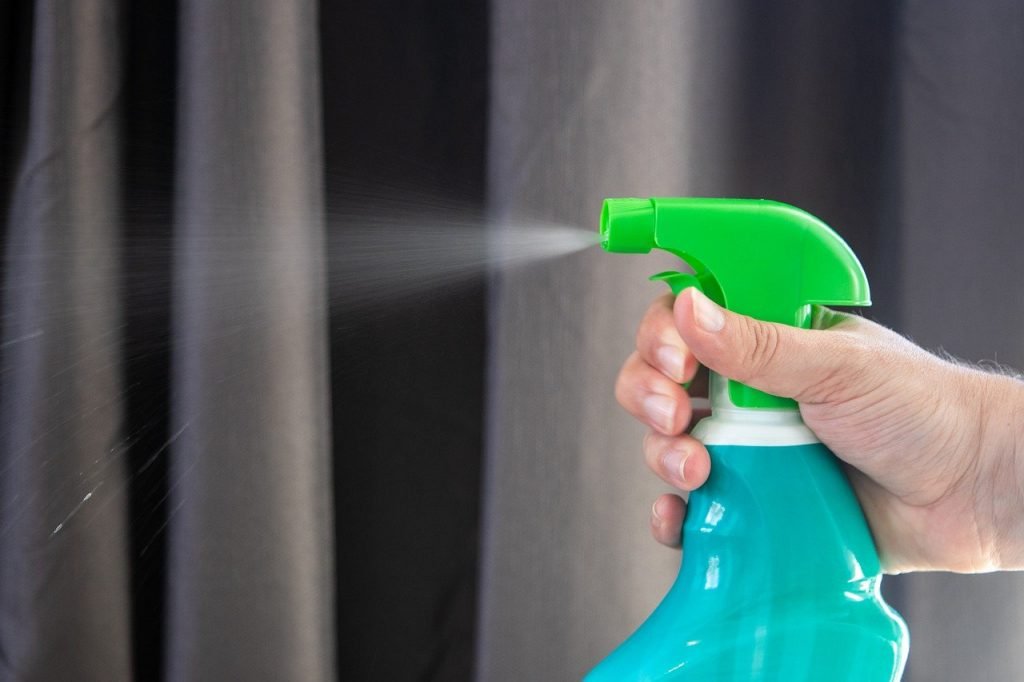
As we know that these weed killers are applied to either the plant or the soil, we can first understand that this is an imperfect method of targeting only weeds. The chances of managing only to affect that one plant are pretty slim, especially with spray drift, liquid dripping onto the soil, or wildlife coming into contact with them and spreading them further.
This means that liquid weed killers are bad news for the environment. Let's look at the main issues caused by weedkillers in the environment.
Herbicides can negatively impact soil health by disrupting the microbial communities essential for nutrient cycling and plant growth. They don't just kill the weed but impact all of the beneficial life around that plant as well. A study published in the journal Science of the Total Environment found that glyphosate, a common herbicide, significantly reduced the abundance of beneficial soil microbes (Zaller et al. 2014). This disruption can lead to poorer soil structure and fertility, making it more challenging to grow healthy plants. So you're not only removing weeds, but reducing your chances of garden success too!
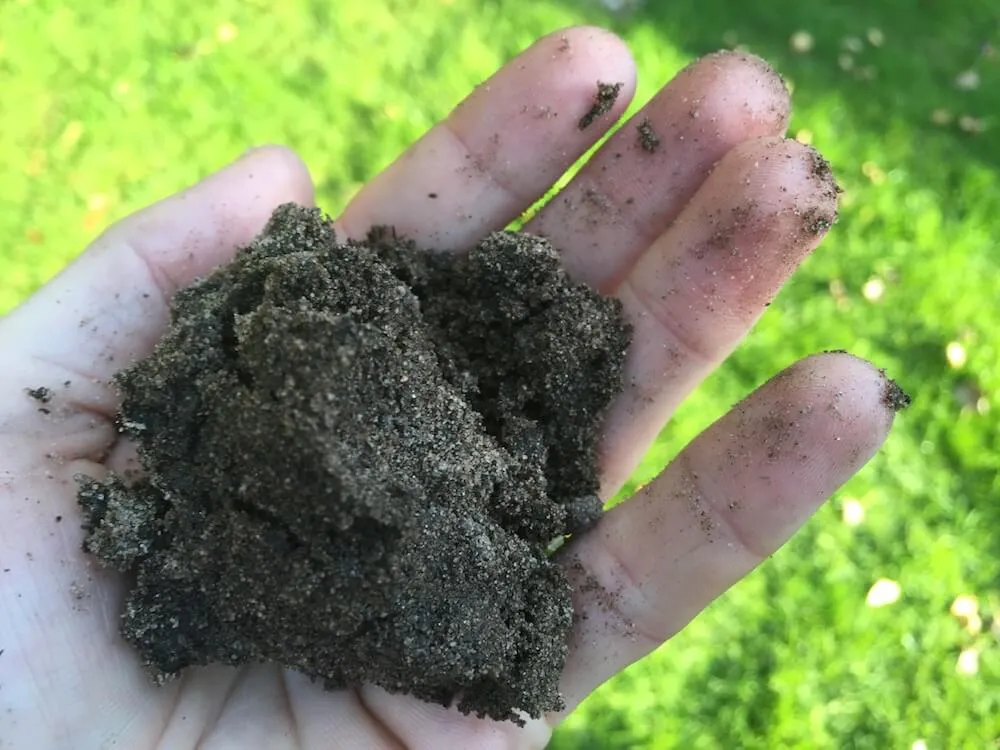
Herbicides can leach into groundwater or run off into nearby water bodies, contaminating drinking water and harming aquatic ecosystems. This is especially true if they are over-applied and then it rains, washing the herbicide and weed killer into our water courses and drains; the United States Geological Survey (USGS) found that herbicides were present in 60-100% of sampled streams and groundwater in agricultural areas (USGS, 2006). Such contamination can lead to algal blooms, which deplete oxygen in water and harm fish and other aquatic life. This results in dead aquatic life alongside the weeds you intended to selectively kill!
Herbicides can drift from the target area, damaging nearby plants and reducing biodiversity. This phenomenon, known as "spray drift," can harm beneficial plants that provide habitat and food for pollinators and other wildlife. A study in Environmental Toxicology and Chemistry highlighted the susceptibility of non-target plants to herbicide drift, leading to reduced plant diversity and ecosystem health (Egan et al. 2014). This is most prevalent with beginner gardeners who sometimes think 'I'll just spray a bit more to make sure' usually soaking a weed rather than the necessary measured dose.
Spraying weed killer in high winds, on rainy days or when the weather is about to turn is a bad idea. This just increases the chances of drifting, which then spreads the weed killer onto your neighbouring plants. Many people get in touch with me asking what has caused their tree, shrub or prize vegetables to suddenly crisp up and die. The usual answer is they've experienced weed killer sprays drifting either from their own poor application of weed killers or their neighbours.
Using weed killers poses significant risks to human health due to the toxic chemicals they contain. Many common herbicides, such as glyphosate, have been linked to serious health issues, including cancer, respiratory problems, and hormonal disruptions. These chemicals can linger in the environment, contaminating soil, water, and even the food we consume.
Exposure to weed killers can occur through direct contact, inhalation, or ingestion, making it a widespread concern. Children and pets are particularly vulnerable, as they are more likely to come into contact with treated areas. Let's take a further look at why weed killers can cause harm to people as well as plants.
Improper handling and application of herbicides can lead to acute poisoning. Symptoms of exposure may include skin and eye irritation, respiratory issues, nausea, and dizziness. The National Pesticide Information Center (NPIC) warns that even brief exposure to herbicides like 2,4-D can cause severe health problems if safety guidelines are not followed (NPIC, 2020). Which is why it is essential to always wear gloves and treat weed killers like you would kitchen bleach. Wash off any weed killer than comes into contact with your hands or skin.
Long-term exposure to herbicides has been linked to serious health issues, including cancer, endocrine disruption, and reproductive problems. The International Agency for Research on Cancer (IARC) classified glyphosate as a "probable human carcinogen" in 2015 based on evidence linking it to non-Hodgkin lymphoma (IARC, 2015). Additionally, studies have suggested that herbicides can interfere with hormone function, potentially leading to developmental and reproductive issues (Mnif et al., 2011).
Whilst the jury is still out on the exact impact of weed killers on humans and animals, the studies and legal cases show that they do have a negative impact on us, especially if used incorrectly or sustained exposure to weed killers. Especially for those working in horticulture who may use them on a daily basis. Wear gloves, masks, and appropriate gear if you have to use weed killers, or find a better organic alternative to remove the potential hazards of herbicides to your health.
I always recommend wearing gloves whenever using any garden sprays, especially comfrey tea which stinks. The advice is especially important if you choose to use herbicides or pesticides. If you get weed killer o your bare skin wash it off immediately. Avoid touching your face or simply rubbing it ont your clothes. Use a mild detergent and thoroughly wash your hands and any other skin its come into contact with. I would also advise avoiding this risk by simply not using herbicides, pesticides, weed and pest killers to begin with!
The overuse of herbicides can lead to the development of herbicide-resistant weed species. This resistance necessitates the use of higher doses or more potent chemicals, creating a vicious cycle of dependency. A report from the Weed Science Society of America (WSSA) noted that herbicide-resistant weeds are a growing problem, affecting millions of hectares of agricultural land worldwide (WSSA, 2019)
Weed killers, particularly those containing harsh chemicals like glyphosate, have a detrimental impact on beneficial insects essential to our ecosystems. These chemicals do not discriminate between unwanted weeds and the beneficial plants and insects that contribute to a healthy garden. Beneficial insects, such as bees, butterflies, ladybirds and lacewings play crucial roles in pollination and natural pest control.
When these insects come into contact with or consume plants treated with weed killers, they can suffer from immediate toxicity or long-term health issues, leading to a decline in their populations.
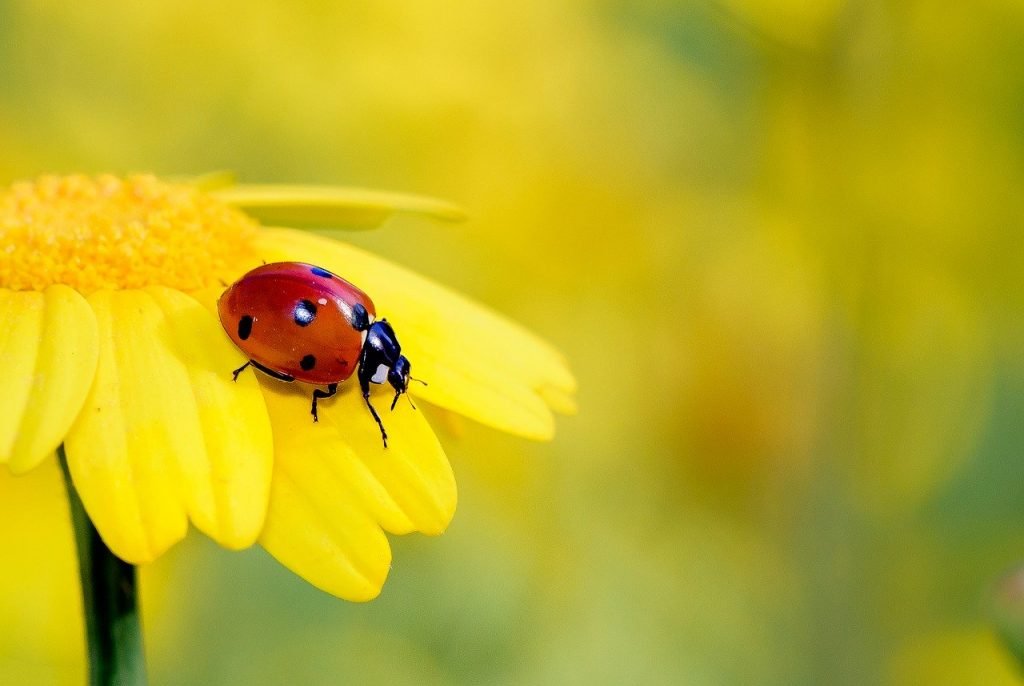
Moreover, the use of weed killers disrupts the delicate balance of ecosystems. Beneficial insects rely on a diverse range of plants for food and habitat. Weed killers reduce this diversity by eliminating many plant species, depriving insects of their necessary resources. This not only affects individual insect species but can also lead to broader ecological consequences, including the reduction of crop yields due to insufficient pollination and the proliferation of pests that beneficial insects would normally control. By understanding and mitigating the impact of weed killers, we can better protect these vital insects and promote a healthier, more balanced environment.
Herbicides can harm pollinators such as bees and butterflies by destroying their food sources and habitat. Research published in the journal Environmental Entomology found that glyphosate exposure reduced the diversity and abundance of bee populations (Balbuena et al., 2015). Pollinators are crucial for the reproduction of many plants, including crops, and their decline can have far-reaching consequences for food security and biodiversity.
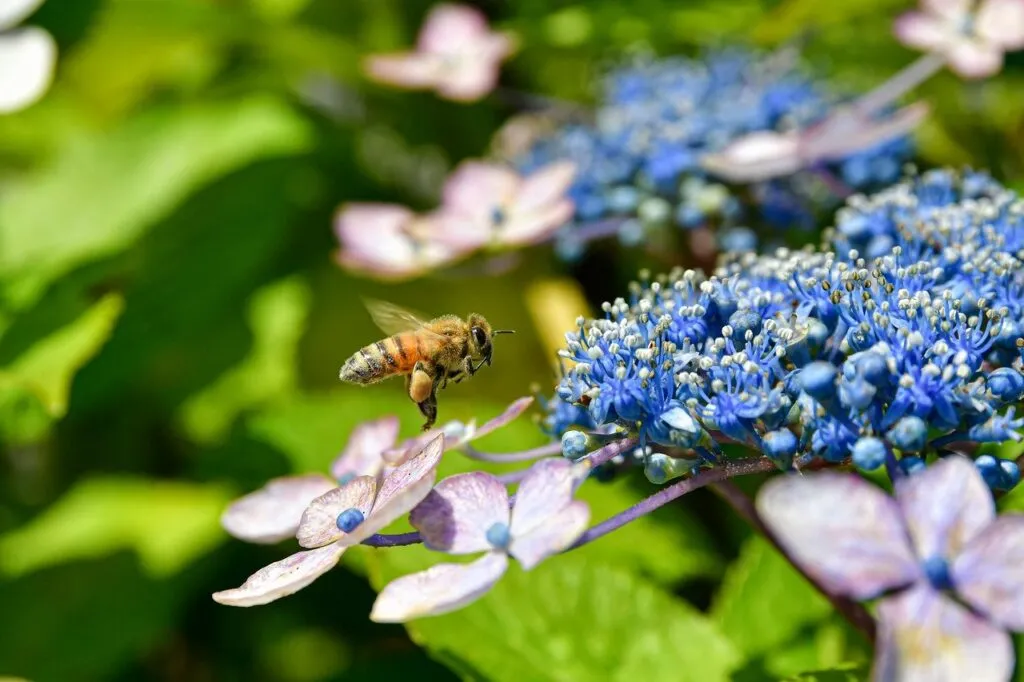
By killing a broad spectrum of plants, herbicides can disrupt the balance of garden ecosystems. This disruption affects not only pollinators but also other beneficial insects that rely on a variety of plants for shelter and food. An article in Ecological Applications highlighted that herbicide use could lead to a decrease in insect diversity, further impacting ecosystem stability (Goulson et al., 2015).
If you imagine weed killers reducing the number of honey bees or even wasps you can start to see why pollination levels then reduce too meaning fewer crops, less flowers and an impact on the amount of food we can grow to sustain our own human life!
Weed killers, or herbicides, are chemical substances used to control unwanted plants. They function through various mechanisms depending on their active ingredients and target species. Here's an overview of how different types of weed killers work:
Systemic herbicides are absorbed by the plant's foliage and transported throughout the plant, including roots and shoots. This process ensures the entire plant is affected, leading to its eventual death. Glyphosate is a well-known systemic herbicide that inhibits an enzyme essential for synthesizing amino acids, effectively starving the plant (AHDB).
Contact herbicides kill the plant tissues they directly touch. They are usually fast-acting and are effective on annual weeds and young plants. Diquat is a common contact herbicide that disrupts cell membranes and causes desiccation (drying out) of the plant tissues.
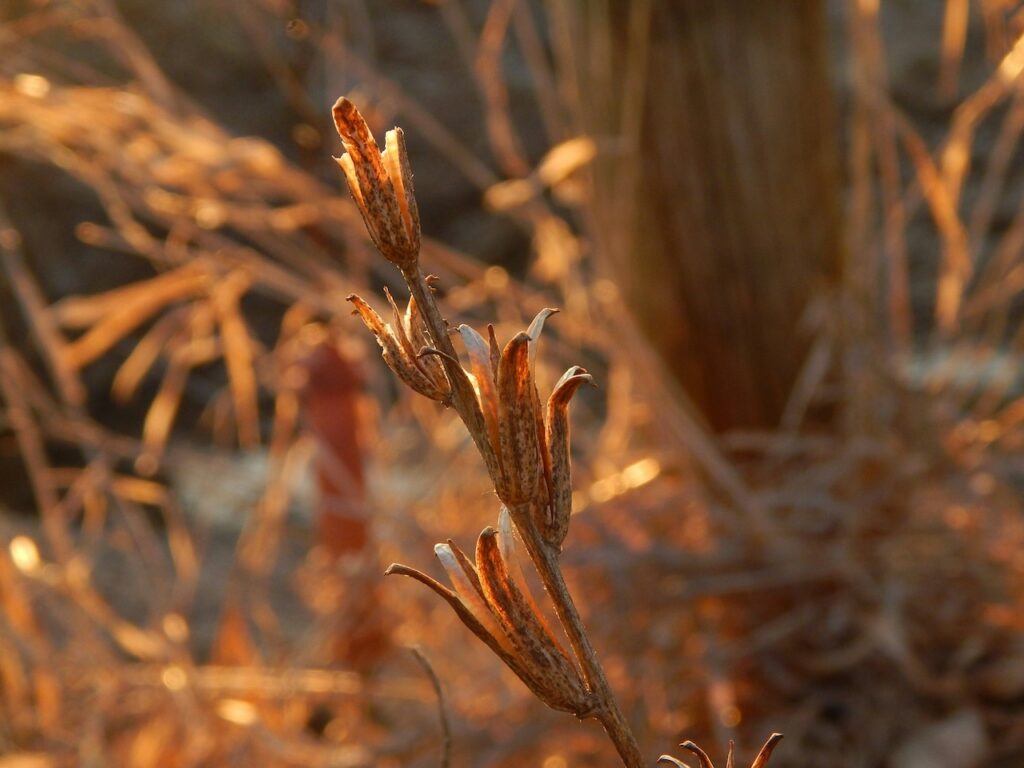
Pre-emergent herbicides are applied to the soil to prevent the germination of weed seeds. They form a chemical barrier at the soil surface, affecting seedling growth. Trifluralin is an example that inhibits root development, effectively preventing weeds from establishing.
Selective herbicides target specific types of plants, such as broadleaf weeds, without harming desired crops like grasses. 2,4-D is a widely used selective herbicide that mimics plant hormones (auxins), causing uncontrolled growth and eventually death in broadleaf weeds while leaving grasses unharmed.
Non-selective herbicides kill all plants they come into contact with. They are often used in areas where complete vegetation control is desired, such as driveways and walkways. Glyphosate can act as a non-selective herbicide, killing a wide range of plant species.
Residual herbicides remain active in the soil for an extended period, providing long-term control of weeds. They prevent the growth of new weeds for weeks or months. Imazapyr is an example of a residual herbicide that inhibits photosynthesis and other essential plant processes.
If you're looking at weed killers in a garden centre or bottles in your shed you maybe confused as to which weed killer kills what weed. Although I would strongly urge you not to use any weed killers here's a table listing some common weed killers (herbicides), their active ingredients, and the types of plants they target. So you can make educated choices about using them and only use the right weed killer for the plant you're trying to kill.
| Weed Killer Brand | Active Ingredient | Type of Plants They Kill | Targeted Plants |
|---|---|---|---|
| Roundup | Glyphosate | Non-selective, kills most plants | Broadleaf weeds, grasses, woody plants |
| Weedol | Glyphosate | Non-selective, kills most plants | Annual and perennial weeds, grasses |
| Spectracide | Diquat, Fluazifop, Dicamba | Non-selective, kills most plants | Broadleaf weeds, grasses |
| Ortho Weed B Gon | 2,4-D, Mecoprop, Dicamba | Selective, kills broadleaf weeds | Dandelions, clover, plantain, chickweed |
| Scotts Turf Builder | 2,4-D, Mecoprop, Dicamba | Selective, kills broadleaf weeds | Dandelions, clover, chickweed |
| Preen Garden Weed Preventer | Trifluralin | Pre-emergent, prevents weed seeds from germinating | Annual broadleaf weeds, grasses |
| Tenacity | Mesotrione | Selective, kills broadleaf weeds and certain grasses | Crabgrass, chickweed, clover, bentgrass |
| Bayer Advanced Weed Killer for Lawns | 2,4-D, Mecoprop, Dicamba | Selective, kills broadleaf weeds | Dandelions, clover, chickweed |
| Scotts Halts Crabgrass & Grassy Weed Preventer | Pendimethalin | Pre-emergent, prevents weed seeds from germinating | Crabgrass, foxtail, goosegrass |
| Brush-B-Gon | Triclopyr | Selective, kills woody plants and broadleaf weeds | Poison ivy, poison oak, brambles, kudzu |
| Casoron | Dichlobenil | Pre-emergent, kills seedlings and young plants | Annual grasses, broadleaf weeds, woody plants |
| Atrazine | Atrazine | Selective, kills broadleaf weeds and certain grasses | Pigweed, lambsquarters, barnyard grass |
| Finale | Glufosinate | Non-selective, kills most plants | Broadleaf weeds, grasses, woody plants |
| Snapshot | Trifluralin, Isoxaben | Pre-emergent, prevents weed seeds from germinating | Broadleaf weeds, annual grasses |
When using any weed killer, it’s important to:
Always consider integrated pest management (IPM) approaches that combine chemical, cultural, and biological controls to manage weeds in a sustainable way. I would always urge you to use weed killers as a last resort and instead use organic methods or more naturalistic approaches to your gardening.
Glyphosate, the active ingredient in many herbicides, including Roundup, is one of the most widely used weed killers globally. It's the catch-all weed killer that pretty much eliminates all plants, not just weeds, which is why it has become so popular as a 'spray to kill' weedkiller. This also means that in the wrong hands or applied incorrectly, it has devastating, wide-reaching implications for killing all plant life, removing huge wildlife habitats, and destroying anything it lands on.
Despite its popularity due to its effectiveness in controlling a broad spectrum of weeds, glyphosate has been surrounded by controversy regarding its environmental and health impacts.
The International Agency for Research on Cancer (IARC), part of the World Health Organization (WHO), classified glyphosate as a "probable human carcinogen" in 2015, linking it to non-Hodgkin lymphoma and other cancers. Studies have shown mixed results, but there is growing evidence and concern over its long-term health impacts.
Some research indicates that glyphosate can disrupt hormonal systems, potentially affecting reproductive health and development.
Exposure to glyphosate can cause acute symptoms such as skin and eye irritation, respiratory issues, and gastrointestinal distress.
Glyphosate or Roundup (the brand name) has had the most press and concern about the impact on human health. Below are a few examples for your further review Ninjas.
In 2018, Dewayne Johnson, a groundskeeper diagnosed with non-Hodgkin lymphoma, won a landmark case against Monsanto (the manufacturer of Roundup). The jury awarded him $289 million (later reduced to $78 million), concluding that glyphosate contributed significantly to his cancer and that Monsanto failed to warn about the risks.
Thousands of plaintiffs have filed lawsuits against Monsanto/Bayer, alleging that exposure to Roundup caused their cancers. As of 2020, Bayer (which acquired Monsanto in 2018) agreed to pay over $10 billion to settle around 95,000 lawsuits while continuing to deny wrongdoing.
Various countries and regions have imposed restrictions or bans on glyphosate due to health and environmental concerns. For example, Austria became the first EU country to ban glyphosate, and several US states and cities have implemented restrictions.
Glyphosate, a widely used herbicide, remains a contentious issue in the UK, balancing agricultural benefits with environmental and health concerns. As of now, the UK has approved the use of glyphosate until 2025, aligning with its commitment to support farmers with necessary tools while adhering to scientific evidence. The Secretary for Environment, Farming, and Rural Affairs, Thérèse Coffey, emphasized the importance of glyphosate for farming efficiency, citing clear scientific backing for its continued use (AHDB).
However, this position is not without controversy. Advocacy groups and environmentalists, such as PAN UK, express concerns over glyphosate's extensive application not only in agriculture but also in urban areas. These groups highlight potential risks to human health and biodiversity, advocating for a transition to more sustainable farming practices (Wicked Leeks).
I'n this article I detail the best organic ways to eliminate weeds but let me summarise here to get you the basics of organic weed killing. First, we'll use proper manual tools instead of a trowel. Second, we'll use matting to smother weeds. Finally, I'll explain how a weed burner can effectively remove weeds, all without chemicals.
Using the right tools to manually remove weeds is my favorite method. Chemical weed killers can harm wildlife and damage gardens.
Hori-Hori The Hori-Hori tool is excellent for digging deep and removing roots with minimal soil disruption.
Japanese Weeder The Japanese weeder, with its sharp hoe-like blade, effectively slices under weeds, causing little disturbance to the soil.
Oscillating Hoe For larger areas, the oscillating hoe is ideal. It cuts through the top layer of soil, severing roots and clearing annual weeds efficiently.
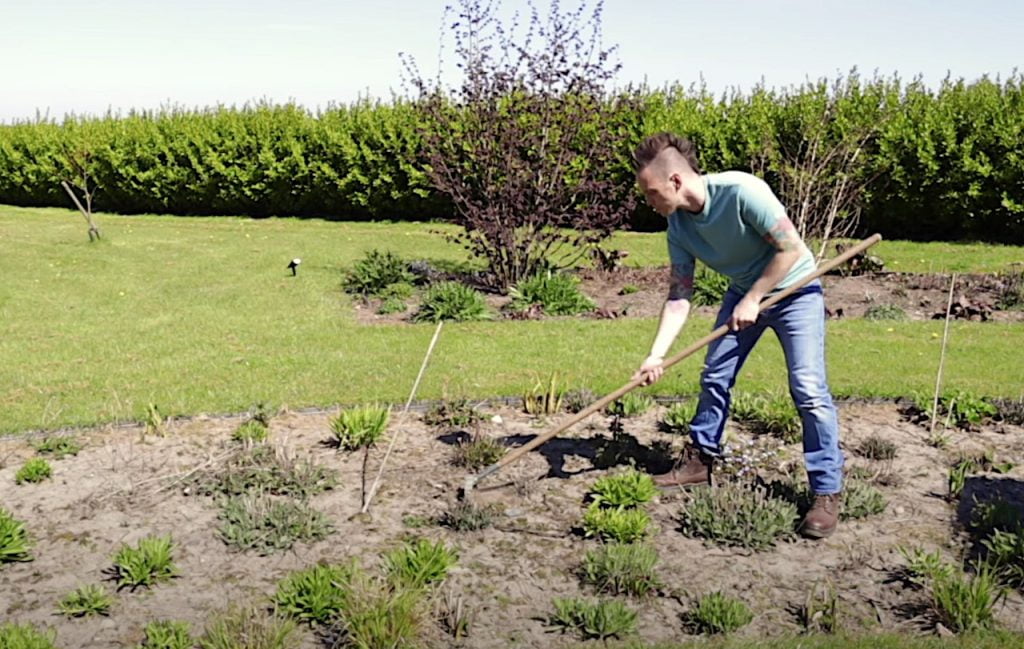
For extensive weed-infested areas, covering them with weed membrane or black plastic matting can help. Leave the matting in place for 2-6 months to block light, preventing weeds from photosynthesizing and growing.
Weed burners are effective and convenient, allowing you to target weeds without bending over. The heat damages the weed’s cells, preventing it from growing. Pass the flame about 6 inches from the weed until the foliage turns matte, indicating cell damage and eventual dieback.
Unlock your gardening potential with Garden Ninja's online garden design courses! Whether you're a novice eager to grow your green thumb or an experienced gardener seeking fresh inspiration, our courses are tailored to all skill levels. Guided by the renowned Lee Burkhill, you'll gain practical skills in garden layout, plant selection, and sustainable maintenance practices.
By enrolling, you'll acquire valuable knowledge and build the confidence needed to transform any outdoor space into a vibrant sanctuary. Join a community of passionate garden enthusiasts and embark on a journey to create a garden that truly reflects your personality and enhances your lifestyle. Sign up today and let Lee Burkhill help you turn gardening into an art form, making your garden a masterpiece.

While herbicides can effectively manage weeds, their use poses significant dangers to the environment, human health, and garden ecosystems. The potential for soil and water contamination, harm to non-target plants and beneficial insects, and the development of herbicide-resistant weeds underscores the need for more sustainable weed control methods. In my experience, the risks and damage to wildlife are not worth the quick benefits of removing a few weeds from your garden.
I encourage gardeners to explore organic and non-chemical alternatives, such as mulching, hand weeding, and natural herbicides, to maintain a healthy and thriving garden.


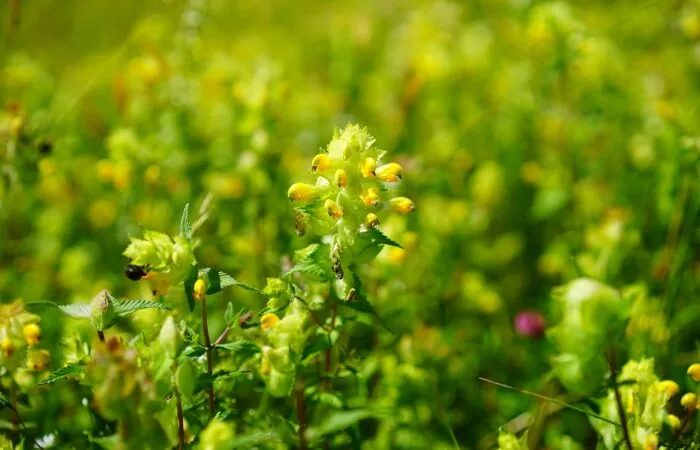
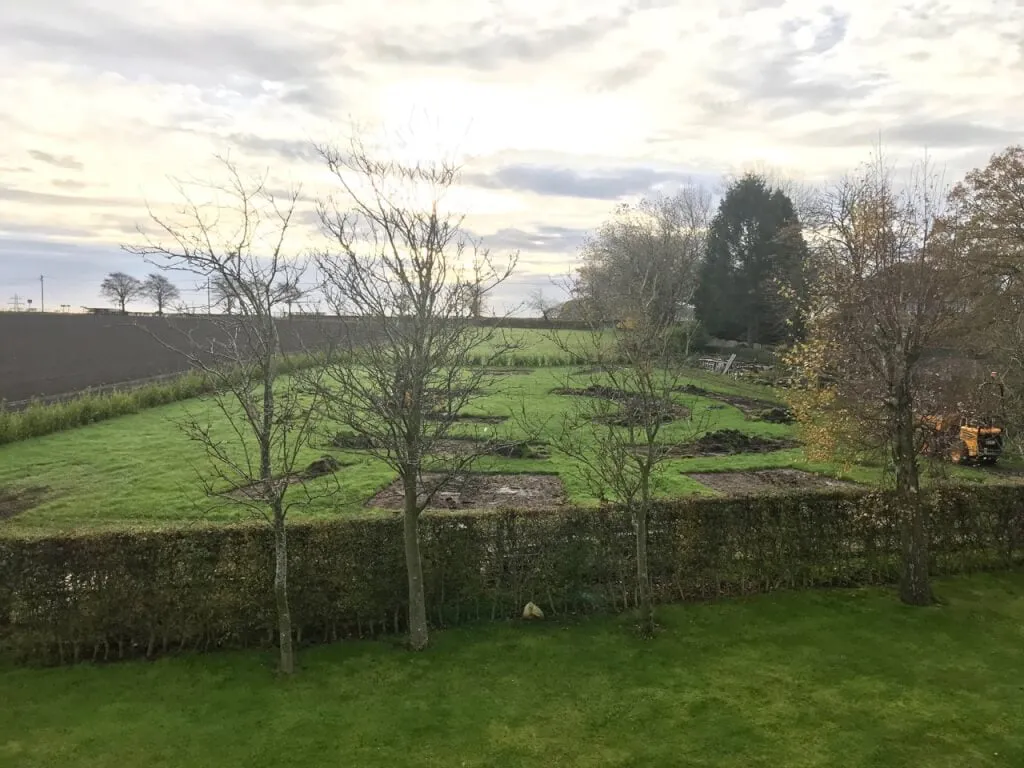
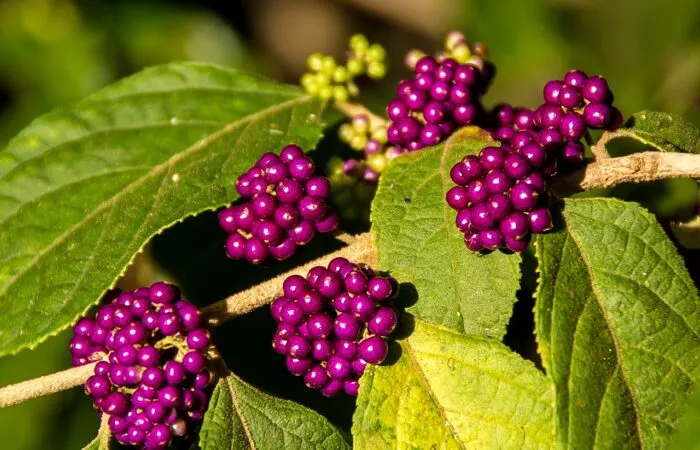

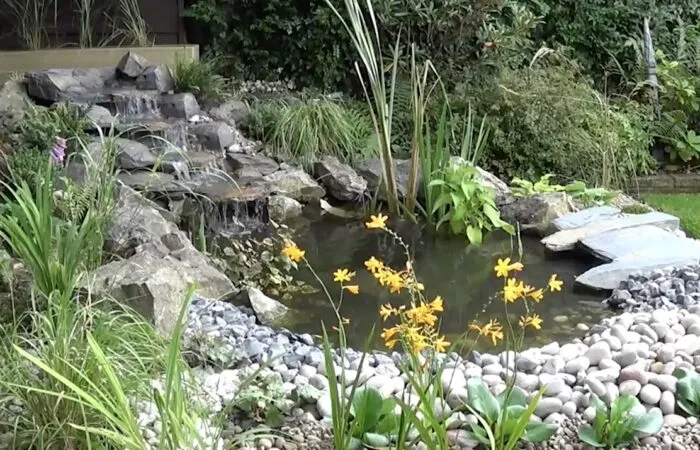
JOIN THE NINJAS

Be the first in line for new Guides, Discount codes and Offers